Recently, Dr. Nguyen Duy Hien, Department of Neurology - Stroke, Tam Anh General Hospital , Hanoi, said that Mr. Nguyen Van Hoang (68 years old, Hanoi) came to the clinic with numbness in his limbs, and signs of paralysis on half of his body. The patient has a history of sleep disorders for 3 years, difficulty sleeping, and shallow sleep. Each night, the patient can only sleep 2-3 hours. The patient has not been treated. In the past 2 weeks, he has been awake all night, tired, and has had a poor appetite.
Mr. Hoang shared that partly because he did not want to use Western medicine, he was afraid of side effects and dependence on drugs. His family bought many folk herbs for him to use but there was no improvement. The prolonged insomnia caused him to lose weight, have memory loss, and become tired.
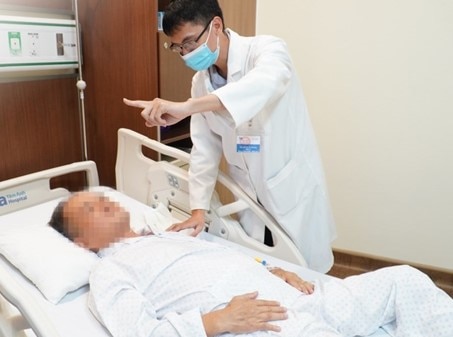
Stroke patients are treated at the Neurology - Stroke Department, Tam Anh General Hospital, Hanoi. (Photo courtesy of BVCC).
In early November, the patient suddenly experienced numbness in the left side of his body and difficulty walking. His family took him to a local hospital for examination and a CT scan of his brain did not detect any abnormalities. The patient was sent home, but his symptoms continued to worsen, so his family took him to Tam Anh General Hospital in Hanoi.
Immediately after the clinical examination, the doctors suspected signs of a stroke and immediately ordered an MRI scan. The entire diagnostic process took only about 45 minutes from the time the patient was admitted. The results showed that the patient had an acute right hemisphere cerebral infarction. The doctors diagnosed the patient with a stroke accompanied by insomnia.
At Tam Anh General Hospital, Hanoi, patients are treated according to the guidelines of the American Stroke Association and the treatment guidelines of the Ministry of Health . Accordingly, patients are given antiplatelet drugs, brain circulation stimulants, and nutritional drugs to protect brain cells. In parallel with the stroke treatment regimen, patients are prescribed herbal drugs to treat sleep disorders.
During the treatment, Mr. Hoang also had nutritionists at Tam Anh General Hospital develop a suitable menu to improve his health and meet the treatment regimen. Psychologists also participated in supporting the patient to improve insomnia.
Dr. Hien said that insomnia is a common sleep disorder that includes difficulty falling asleep, intermittent sleep, not sleeping deeply, not sleeping enough, waking up at night, waking up too early in the morning, sleeping during the day, anxiety, depression and irritability, difficulty concentrating or remembering...
Sleep plays an important role in helping the body rest, recover and regenerate energy. Getting enough sleep helps the body stay healthy, ensures daily activities and maintains a good mental state. Sleep also helps enhance memory, improve learning and working performance.
According to Dr. Hien, in Mr. Hoang’s case, although it cannot be confirmed that insomnia is the direct cause of stroke. However, prolonged insomnia is a factor that increases the risk of stroke. If not treated, insomnia can also lead to many other dangerous diseases such as anxiety disorders, memory loss, high blood pressure, arrhythmia, myocardial infarction, etc.
Dr. Hien explains that insomnia is closely related to stress, fatigue, etc., which can cause an excessive increase in free radicals. Free radicals attack the entire body but are concentrated in places that consume a lot of oxygen, such as the blood vessels in the brain. This promotes the formation of atherosclerotic plaques and blood clots that block blood flow to the brain. These atherosclerotic plaques thicken and form blood clots that block blood vessels. At this point, anemia occurs, causing a stroke.

Do not be subjective when suffering from prolonged insomnia. (Illustration photo).
To prevent stroke, each person needs to work scientifically and build a reasonable diet and lifestyle. Take enough time to rest, get enough sleep, from 7-8 hours each night. Establish a relaxing sleeping habit with a reasonable temperature; do not eat too much before going to bed; limit caffeine use from 2pm. When there are signs of sleep disorders, absolutely do not abuse sedatives. Instead, it is necessary to see a doctor and get treatment early, with the right specialist and the right regimen to achieve good treatment results.
In case of mouth distortion, numbness in limbs or half of the body, difficulty speaking, etc., the patient should immediately go to a medical facility that can diagnose and treat stroke early. For people with high risk factors related to stroke such as: family history of stroke; previous stroke; people with high blood pressure, heart disease, high blood cholesterol, obesity, diabetes; people with unhealthy eating habits, smoking, etc., should proactively screen early.
Le Trang
Source



![[Photo] Party and State leaders visit former President Tran Duc Luong](https://vphoto.vietnam.vn/thumb/1200x675/vietnam/resource/IMAGE/2025/5/24/960db9b19102400e8df68d5a6caadcf6)


![[Photo] Ho Chi Minh City holds funeral for former President Tran Duc Luong](https://vphoto.vietnam.vn/thumb/1200x675/vietnam/resource/IMAGE/2025/5/24/9c1858ebd3d04170b6cef2e6bcb2019e)

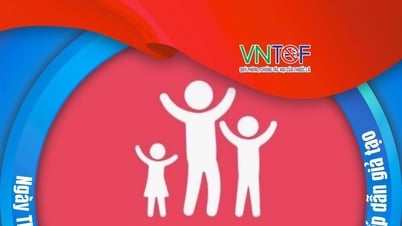



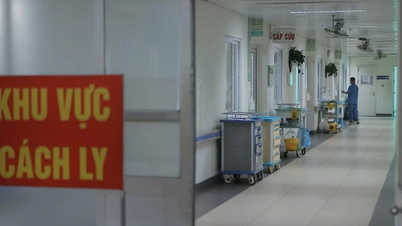

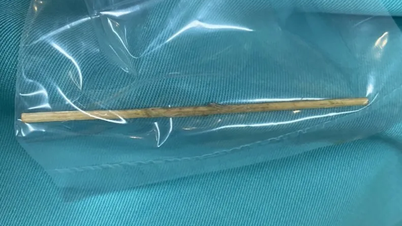


















































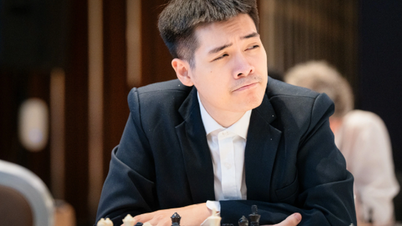


































Comment (0)